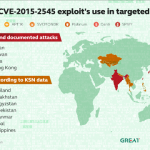Putting up additional investments to improve the internet experience of its customers, Globe Telecom’s capital expenditure in the first three months of the year totaled P7.1 billion, up 45% from a year earlier, as the company continues to boost its data capacity and expand network reach amid the growing demand for high-speed data connectivity.
According to Globe Acting Chief Finance Officer Rizza Maniego-Eala, majority of the company’s capital expenditure were utilized for network capacity expansion, necessary for the telecommunications operator to address the growing demand for bandwidth as more and more of its customers are adopting a digital lifestyle.
“The increase in capital spending is geared towards building further our network capacities. These investments are focused on providing our various customer segments with high-speed internet connectivity, consistent with their usage demands as more and more adapt a digital lifestyle,” Eala said. She said more than 70% of its capex for the first three months of the year went to data-related investments amid explosive growth in the company’s data portfolio.
Globe launched early this year another massive infrastructure build aimed at expanding network coverage and capacity for both mobile and wireline using the different technologies that include 3G, LTE and even Wi-Fi. The company also plans on creating an internet superhighway by deploying fiber optics in 20,000 barangays all over the country by 2020 to provide ultra-fast internet access to around 2 million homes nationwide. Investments relating to its fiber deployment alone could reach up to $2 billion within the 5-year period.
To implement such network capacities, Globe needs to develop green field sites and increase its cell site density. However, the company has been facing difficulties in building more cell sites and in establishing right-of ways in the process enhancing network coverage and capacities. The company needs to secure up to 25 permits with a lead time of at least 8 months before a single cell site could be constructed.
Despite such challenges, the company is bent on aggressively expanding its network capacities, Eala stressed. “We have earmarked huge amounts of money to support the continued growth in data requirements. In 2015, we were authorized to spend U$850 million on our network infrastructure but only spent U$704 million because of the significant number of permits required for each and every cell site, causing tremendous amount of delays. This year, we are committed to spend another U$750 million to serve capacity requirements,” Eala added.











